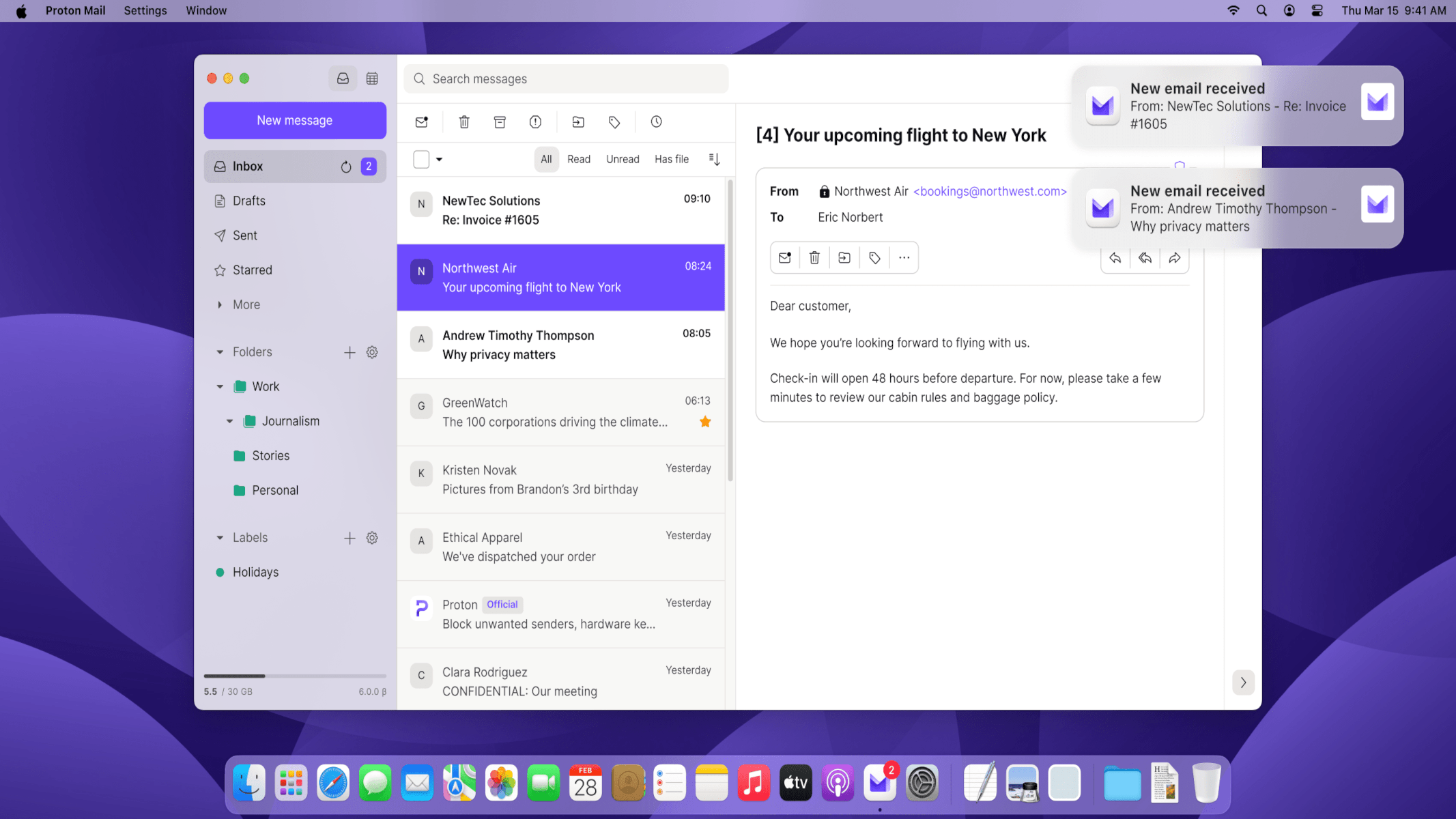Proton Mail is coming to all major desktop platforms
The privacy-first provider is coming to Windows, Mac and Linux

Sign up for breaking news, reviews, opinion, top tech deals, and more.
You are now subscribed
Your newsletter sign-up was successful
Proton Mail is broadening its support for more platforms by making desktop apps available for all major systems.
The secure email provider, popular with those who send sensitive communications, now has an app for Windows and Mac computers, as well as a Linux version in beta. These are available to paying users of Proton Mail.
A desktop app is also available for Proton Calendar (again for paying customers). There is a 14-day free trial for non-paying users to experience these new desktop apps too.
Accessible to all
The Swiss firm notes that Proton Mail is now available on every major desktop and mobile platform. They also follow in the wake of the desktop app launches for its other products - the cloud storage service Proton Drive and password manager Proton Pass.
Proton Mail is the world's largest encrypted mail service, and the company claims that the new desktop apps offer the same "robust end-to-end encryption," but in a more convenient form.
Proton believes that other email providers do not take user privacy as seriously. It claims that users of Microsoft Outlook, for instance, "potentially share their data with Microsoft’s 801 external partners." Those who access their emails via Chrome also give advertisers a chance to see their browsing history, according to Proton.
Proton believes that brining its services to desktop highlights its "commitment to making privacy and security as accessible as possible." It adds, "it’s an important part of offering people the choice of how to protect their data, whilst enabling them to be as productive as possible."
Sign up to the TechRadar Pro newsletter to get all the top news, opinion, features and guidance your business needs to succeed!
The company also notes that big email providers, such as Gmail and Yahoo, do not offer desktop solutions. Proton claims, however, that they are often requested from users, especially business customers.
MORE FROM TECHRADAR PRO

Lewis Maddison is a Reviews Writer for TechRadar. He previously worked as a Staff Writer for our business section, TechRadar Pro, where he gained experience with productivity-enhancing hardware, ranging from keyboards to standing desks. His area of expertise lies in computer peripherals and audio hardware, having spent over a decade exploring the murky depths of both PC building and music production. He also revels in picking up on the finest details and niggles that ultimately make a big difference to the user experience.